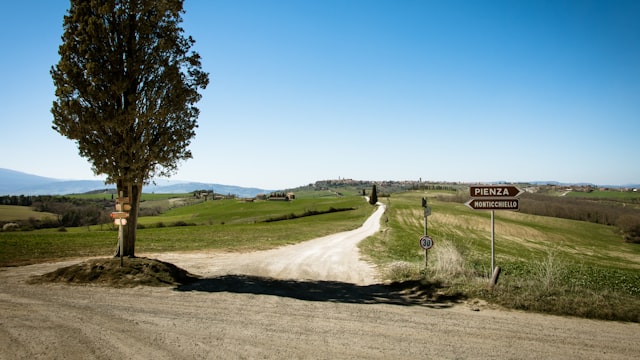
Seen from a common good position the market forces and possibility of misuse behind tourism might create problems, including social dislocation, damaged heritage, inordinate monetary reliance and ecological damage.
The mix of economic concerns surrounding sustainable tourism, in addition to associated ideas described as responsible tourism, and ecotourism have been around a long time.
Similar to many other prominent considerations business managers, the general public, state governments, or activists, are going to focus on specific segments.
Oftentimes the most explanatory material are not sweeping scholastic case studies but detailed stories showing individuals and small communities. Surprisingly frequently it's the largest organizations offering the fresh and educational stories. Of course there is also a role for travel statistical statements or policy assessment. Material such as ADVANCED ECOTOURISM CERTIFICATION ACHIEVED BY YURAYGIR WALKING EXPERIENCES – Global Sustainable Tourism Dashboard help us to take a look at the far reaching topics of sustainable tourism hospitality and travel.
[ls_content_block slug="responsibletourism4"]
We would like to extend a warm welcome to Yuraygir Walking Experiences and congratulate them on achieving Advanced Ecotourism certification on four of their tours!

Operating on the Northern New South Wales coast, Yuraygir Walking Experiences brings together their extensive local knowledge, passion and collective experience to provide visitors with the opportunity to walk, explore and learn about the 65 kilometres of undisturbed coastline that run the length of the Yuraygir National Park.
On their longest tour, the four-day King Tide Guided Tour, guests have the opportunity to explore the Yurangir coast, cross rivers and learn about the native wildlife and coastal conditions before ending the day with a hot shower and meal with new friends. On this tour, visitors can expect to experience the best of the coastal Yurangir region without having to worry about organising river crossings, accommodation or food as the tour includes all necessary logistic requirements and comforts including hot showers and amenities. Guests can enjoy the tour with an experienced and knowledgeable guide who understands all relevant local conditions and can give unrivalled insight into the area, its history and its natural and cultural values. Now certified with Advanced ECO tourism certification you can experience the best of the Yuraygir National Park knowing that your in capable and sustainable hands.

If visitors don’t have time for a complete four-day trip, then other options are available, including a guided two-day highlights tour in either the Central or Northern Yuraygir region. These walks are a great way to experience some of the best features and highlights of the area with a knowledgeable guide with breakfast, lunch and dinners included, accommodation in Minnie Water or Wooli is self-arranged.

If guests are after a more adventurous experience, the Weekend Walk and Paddle tour is a great way to immerse themselves in nature with this combination walking and paddling tour. Balancing Adventure and relaxation the Weekend Walk and Paddle is a fully guided tour taking visitors on a two day and two night trip through the Yuraygir National Park.

Yuraygir Walking Experiences cooperate with the New South Wales National Parks and Wildlife Service and with local Indigenous communities to ensure the benefits of tourism in the region are maximised and the negative impacts minimised. The business also draws upon and utilises local expertise, produce and talent to offer a unique local ecotourism product offering high quality, personalised interpretive experiences of the natural and cultural values of Yuraygir National Park.
Ecotourism Australia would like to once again congratulate Yuraygir Walking Experiences on their development of sustainable ecotourism products and in achieving Advanced Ecotourism Certification for their above mentioned tours.
For more information about Yuraygir Walking Experiences, visit our Green Travel Guide.
[All photos retrieved from Yuraygir Walking Experiences’ website or Facebook page]
Original Source link ADVANCED ECOTOURISM CERTIFICATION ACHIEVED BY YURAYGIR WALKING EXPERIENCES – Global Sustainable Tourism Dashboard
[ls_content_block slug="responsibletourism3"]
[ls_content_block slug="responsibletourism4"]
Green Travel
What the heck is green tourism? Responsible tourism, sustainable tourism, eco-tourism, and green tourism are usually taken as interchangeable. Technical classifications aside the idea remains exactly the same: careful eco-friendly reduced impact hospitality and tourism that accepts the way things are and doesn't strive to wreck things for selfish purposes. Eco-tourism is more narrowly defined by the International Ecotourism Society as: responsible travel to natural places that sustains the ecosystem and enhances the benefit of local people. The key values of ecotourism include cutting down on impact, protecting biodiversity, developing environmental attention, and respecting local culture. Generally, the main attractions for ecotourists are natural beauty, flora, animals, and cultural heritage.
The term green tourism was used by researchers in a study that laid out the hospitality business practice of positioning green placards in hotel rooms to encourage guests to reuse bath towels. The study determined regarding a lot of accommodations fundamentally made no attempt to really avoid wasting resources or reduce waste; they just wished to appear to be environmentally friendly. Very much like the introduction of the demand for eco-tourism twenty years ago where companies just put on the word 'eco' to their logos.
[caption width="640" align="aligncenter"]
Considering sustainable tourism begins with some basic issues. Is tourism a good thing? Hospitality and tourism supercharges economic climates. It employs many thousands of workers, enriches our companies and funds important prevalent services, like schools and police. Travel and hospitality can provide jobs and boost the wealthiness of a region. Does tourism change the environment? Travel puts considerable pressure on local land use, and may result in soil erosion, greater pollution, natural habitat decline, and much more burden on endangered animal species. These impacts can ultimately ruin the environmental resources on which travel depends. Sustainable tourist ventures help environmental conservation, social development, and local economies. Examples of sustainable business practices include conserving water and energy, supporting community conservation projects, recycling and treating waste, taking on staff from the local community, compensating them fair wages and offering training, and sourcing locally-produced products for restaurants and gift shops. Sustainable tourism operations take real steps to increase the welfare of local people and come up with positive benefits to the conservation of natural and cultural heritage. In doing so, they often cut down on their own costs and safeguard the longevity of their enterprises alongside encouraging ethical travelers. To enable sustainable travel and leisure to do well, it needs to be worthwhile for businesses. Is sustainable tours really difficult and mundane? A customary false impression is that responsible tourism is challenging and restrictive. It is easy it certainly does not imply your trip will be any less satisfying. There are many ways to have more operators that totally support eco-friendly travel .
[ls_content_block slug="responsibletourism5"]
No comments:
Post a Comment